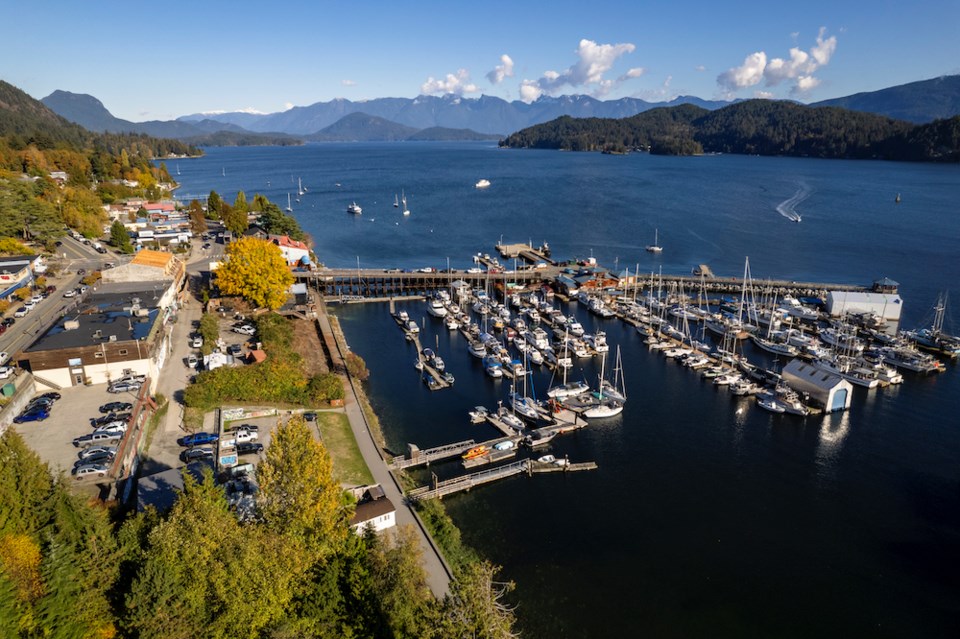The Town of Gibsons, along with the Gibsons Landing Harbour Authority and Greenline Ferries, is pitching a bright idea: an electric charging station in the harbour. And they’re asking for a federal grant to design, build and install it.
In the first quarter administration department report, included in the April 23 committee of the whole agenda, staff noted that the equivalent of more than 1.4 million metric tons of CO2 is emitted by domestic marine vessels in B.C. annually. Those emissions are expected to increase. Electrification can help but the report notes shore facilities need to help support charging.
“Even with recent technical advancements in all-electric propulsion, these efforts are nothing without a place to charge the vessel and small craft harbours are well positioned to help… By their very nature, they are in locations of interest to many types of commercial workboat operations,” the report said. “What small craft harbours do have is a well-structured management and oversight regime. What they currently lack is the sophisticated charging infrastructure needed to make electrification work.”
That’s where the idea for a “charge barge” comes in. The standalone modular charging station could be used by large electric commercial vessels (such as tugboats, fishing vessels, passenger boats, ferries and other workboats). The equipment would also help reduce prolonged dock occupancy. The report said the barge could be floated to the harbour and “seamlessly extend an existing dock.”
Staff said they’re also working with the Harbour Authority to improve providing water to the boating community.
In the meeting, Coun. Christi Thomson called the charge barge an “exciting opportunity” and commended the staff for “putting Gibsons at the forefront in its consideration and action toward carbon emission planning.”
Coun. Stafford Lumley said he thinks the charge barge is awesome, and asked staff about Gibsons’ ability to handle more charging with its current power grid. Staff said BC Hydro is looking to increase the amount of charging stations provincially and is supportive of the charge barge proposal, which would be designed with hydro’s power in mind. The project doesn’t require upgrading the BC Hydro grid power, but operates with a continuous trickle charge from existing shore power, the report said. That charge replenishes a containerized battery pack onboard the charge barge, then is transferred to the vessel in a high-capacity charge.
Deputy mayor David Croal commented that he was shocked to recently learn an hour of filming generates 42 tonnes of carbon. He suggested adding electrical charging stations in popular filming locations to reduce carbon emissions and reduce diesel generator use.
Lights, cameras, fees
In the same meeting’s Q1 report from the administration department, staff told council filming took up a lot of staff time. So far in 2024, three companies have applied for permission to film in the Town to shoot a movie called the Blind Date Book Club, the upcoming TV series Murder in a Small Town and part of the Amazing Race.
The third company was scheduled to begin filming the day after the committee meeting and finish by the end of the month.
In their presentation, staff said they are in the process of increasing filming fees, perhaps with a sliding scale because of the differing time requirements of each application. Staff said the town could have been better placed to have much more revenue come in.



